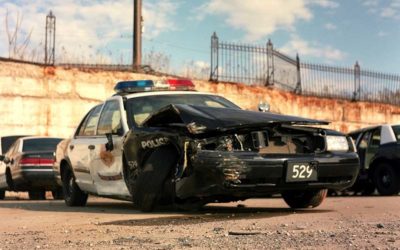Nursing Home Abuse and Neglect – What You Need to Know
It is never an easy decision to allow someone to care for your aging loved one when you can no longer do it. Nursing homes have the task of caring for many elderly people, some with significant health conditions and needs, which is why finding a reputable and caring home is so critical.
Grim Statistics About Nursing Home Care
According to statistics from the National Center on Elder Abuse, over three million people are living in assisted care or nursing facilities. In 2020, over 15,000 complaints were filed against nursing homes. In 2018, the National Center for Victims of Crime report stated that those living in a nursing home facility were vulnerable to varying degrees of abuse, both by other residents and the staff entrusted with their care. Finding out that the people you trusted to care for your family member failed to do so, and having it result in an injury or pain and suffering, can be very overwhelming and emotional.
What are Nursing Home Neglect Lawsuits?
When your aging loved one has suffered due to the negligence of a nursing home or assisted living facility, you are entitled to compensation for their pain and suffering and medical bills. Filing a claim, however, isn’t just about compensation; it is a way to ensure that nursing homes follow correct procedures and standards for everyone’s sake. Nursing home abuse and neglect lawyers work on a contingency basis, meaning that there are no fees unless you win your case.
Nursing Home Abuse and Neglect Lawsuits
With such a high rate of nursing home residents experiencing abuse and neglect, you must be vigilant about spotting the signs of abuse so that you can keep your loved one safe. Some signs of abuse include:
- Bed sores (or pressure sores)
- Dehydration
- Malnutrition
- Poor hygiene
And in more severe situations:
- Infection
- Sepsis
- Wrongful death
- Other unexplained injuries
Residents suffering from dementia or Alzheimer’s Disease might not be capable of communicating with you, so you must look for subtle or sometimes overt signs of abuse and neglect, such as:
- The victim appears more agitated, upset, or withdrawn when staff members approach
- You notice significant weight loss or gain, or malnutrition
- They have unexplained scratches, cuts, and bruises at different stages of healing
- Your loved one has sudden behavioral habits like biting, rocking, or distancing themselves
- They are sick frequently
What is Considered Nursing Home Abuse and Neglect?
The definitions of abuse and neglect are open-ended, leaving a lot of room for interpretation and varying degrees and actions. There are multiple types of nursing home abuse, such as:
- Physical abuse like pushing, punching, slapping, or restraints
- Mental abuse in the form of intimidation, belittling, or threats that are intended to cause emotional pain
- Sexual abuse which includes forcing sexual acts, rape, or inappropriate touching
- Financial abuse, such as withdrawals from someone’s bank account or using finances without permission
- Neglect can include failure to provide prescription medications, malnutrition, unsanitary conditions, failure to treat bed sores and ulcers, abandonment in public areas, and failure to take measures to stop an elderly person from wandering from a nursing facility
When to File A Nursing Home Abuse or Neglect Suit
If you see signs that your loved one either is not being cared for properly – or worse, they are being mistreated – it is never an overreach to demand an investigation. Many elderly people rely on others for their care and concern, and if you suspect they are not receiving that care, then filing a lawsuit is critical to keeping them safe and getting all that they are entitled to for pain and suffering, as well as any long-term effects the abuse and neglect might cause.
At Califf Law Firm, we understand how emotional nursing home neglect and abuse cases can be, and we are here to defend both you and your loved one through this stressful time. Contact our office today to discuss how to start the process of ensuring that your elderly loved one is safe.




